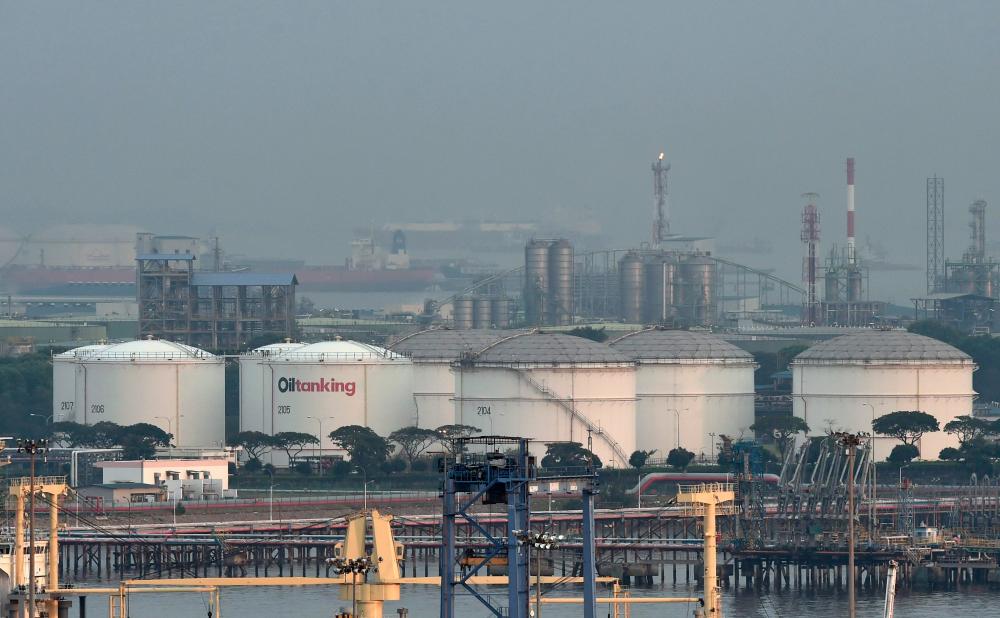PETALING JAYA: Fitch Solutions has projected global demand for refined fuels in 2029 to be 3.5% lower due to the Covid-19 pandemic, in line with a slower trend rate of global real gross domestic product (GDP) growth.
On the one hand, it said, much of the demand loss induced by the pandemic will be temporary, with the heaviest losses having already been incurred.
“On the other hand, it also points to an impact that far outlasts the pandemic itself; more specifically, to permanent demand destruction,” said the research arm of Fitch Ratings.
The outlook is congruent with its projection on the global economy, post-pandemic as its economist expect the trend rate of global real GPD growth will slow, from the 3.2% year-on-year average seen in the last decade to 2029, to 2.4% or lower in the 10 years to 2029.
The research arm pointed out that the slowdown was already in play prior to the outbreak, reflecting the impact of an ageing population, structural slowdown in Chinese economic growth and gradual deglobalisation, among other things.
Regionally, in 2020, it highlighted few major markets will escape economic contraction or a decline in their demand for oil and the impact of Covid-19 varies considerably according to the various level of exposure and the differing responses.
“Overall, developed markets (DM) have incurred by far the largest declines in output and demand, in both absolute and relative terms,” said Fitch.
In general, it explained that in order to contain the spread of the virus, these markets have also put in place more stringent lockdowns, imposing tighter restrictions on economic activity and domestic mobility.
In the long run, this dynamic will reverse and emerging markets (EM) will see the more enduring impact from Covid-19.
The research arm argued that the containment measures are transient and it expects some social distancing behaviours most notably, work-from-home protocols will prove sticky in developed markets and there is little reason to believe that, over a 10-year horizon, mobility trends will have been radically altered by the outbreak.
It also anticipated the slower GDP and trade growth will continue to weigh on DM demand after the virus has passed, but the slowdown will be a gradual one, impacting demand growth at the margins.
Meanwhile, gas demand has been better insulated from the coronavirus, evident in high frequency data, which is signalling a substantially smaller demand loss in 2020.
“Worldwide, we forecast natural gas demand to decline by 0.8% this year, significantly softer than the 5.9% decline we forecast for oil.”
Although the near-term price impact from Covid-19 has been heavily bearish, its data indicate that the long run impacts are mixed as the collapse in demand has driven steep declines in upstream spending.
“According to our estimates, global O&G capex will contract by around 20% year on year. Investment had barely begun to pick up in the wake of the previous price collapse in 2014 and the global spending gap will now widen once again as a result of the coronavirus.”
Fitch estimated 2029 oil supply to be 5.9% lower and gas supply to be 1.9% lower than what it would have been in the absence of the pandemic.
It also highlighted that the decrease in supply significantly outstrips the decrease in demand over the 10 years to 2029, particularly for oil.
“This would suggest that, while the short-run impacts of the coronavirus on prices will be net bearish, in the long run, the sharp curtailment in upstream investment puts the global market at risk of a supply deficit and, consequently, a spike in the oil price.”
Fitch estimates 2029 oil supply to be 5.9% lower and gas supply to be 1.9% lower than what it would have been in the absence of the pandemic. – AFPPIX














